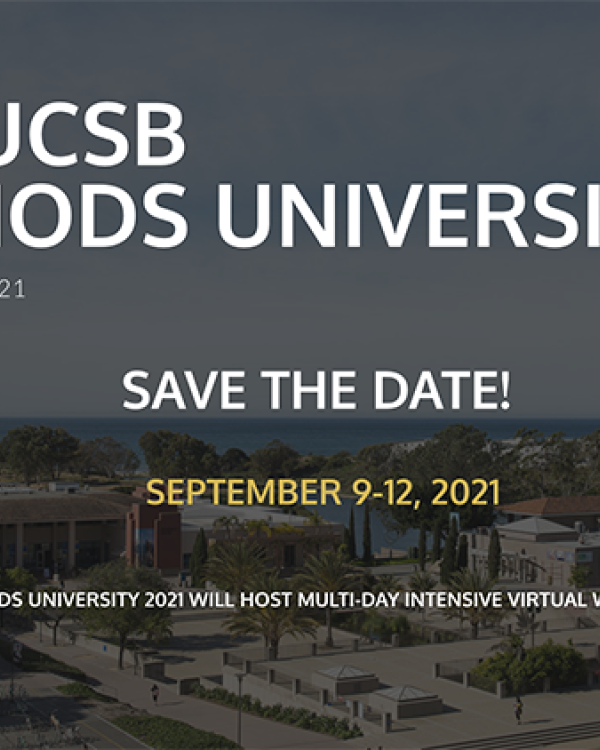
Registration opens 1 July 2021 for Methods University. Methods University, housed in UC Santa Barbara’s Gevirtz School, will offer multi-day intense workshops on a specific methodological topic. These workshops are geared for graduate students, post-doctoral scholars, and early-career faculty. This year, the three virtual workshops—hosted from September 9-12—will be led by Dr. Karen Nylund-Gibson and Dr. Tarek Azzam from the Department of Education.
Dr. Karen Nylund-Gibson will be leading a two-day workshop, entitled “An Introduction to Latent Class Analysis (LCA).” It will include a brief overview of mixture models, including latent class, latent profile and latent transition analysis, with the primary focus on the specification and interpretation of latent class analysis among other subjects.
Dr. Tarek Azzam will be leading two one-day workshops. The first is “Data Visualization” and the topics covered will include interactive visual displays, GIS, qualitative and quantitative data display, and crowdsourcing visualizations. The second is “Introduction to Evaluation” and it will provide participants with a broad understanding of program evaluation. Both of these workshops are designed as introductions to their subjects and require no prior training.
Karen Nylund-Gibson is an Associate Professor of quantitative research methodology in the Department of Education. She has been at UCSB since 2009. Prior to joining the department, she was a Postdoctoral Fellow at the Department of Mental Health at Johns Hopkins University. She earned her Ph.D. at UCLA, working with Bengt Muthen. Her research focus is on latent variable models, specifically mixture models and she has published many articles and book chapters on developments, best practices, and applications of latent class analysis, latent transition analysis, and growth mixture modeling.
Tarek Azzam is an Associate Professor in the Department of Education and the director of the Center for Evaluation & Assessment at UCSB. Dr. Azzam’s research focuses on developing new methods suited for real-world evaluations. His research work involves studying the impact of politics on the evaluation process, and the integration of new technologies and resources, such as crowdsourcing, to develop new evaluation specific methodologies.
Dr. Azzam has also been involved in multiple research and evaluation projects that have included the evaluation of student academic and retention programs at the K–12 and higher education levels, Science Technology Engineering Math (STEM) education programs, children’s health programs, and international schools and development program. Dr. Azzam is also an active member of the American Evaluation Association.